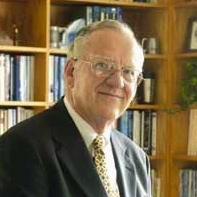When President Bush entered office, those of us who favor market approaches to environmental policy had high hopes. Some of us had served on candidate Bush’s environmental advisory team and we knew he was open to new ideas. He recognizes that the day of command-and-control policies is over and that environmental progress depends on market forces, property rights, positive incentives, and community action. But when PERC-the Center for Free Market Environmentalism-took a hard look at what the president had accomplished, he barely mustered a passing grade.
PERC’s Mid-Term Report Card, issued in January 2003, gives the Bush administration a C- for environmental and natural resources policy. Supporting the one-page report card is a 116- page study (see live-perc-wp.pantheonsite.io) that analyzes conditions in 16 areas, including air quality, ocean fisheries, federal land, climate change, chemical releases, Superfund, and endangered species.
Where we had expected most progress was the management of public lands, but he got a C-. Gale Norton’s upbeat rhetoric has not been backed by policies of local control or tradeable rights- such as allowing willing ranchers to sublease their grazing permits to environmental groups who can then retire them. It shocks us that Bush is the first president to ask Congress for $900 million per year to expand the federal estate-when the National Park Service and other land agencies can’t manage the land they have. And it saddens us that Bush’s support for exploration in the Arctic National Wildlife Refuge fizzled because he couldn’t arrange the right incentives to win over environmentalists. (He got a C on ANWR.)
Air quality policy, mired in old-style regulations and costly standards that generate no net benefit, got a D. (Market tweaks in the Clean Skies Initiative didn’t justify an additional 70 percent reduction in emissions from power plants. We are not in favor of markets just for the sake of having them around.) The administration’s failure to cancel Clinton’s midnight regulation on arsenic-an unnecessary standard that hurts small, poor western towns-got a D. And forcing small companies to report on minor releases of the metal lead earned an F.
There are some bright spots. Just before the Report Card went to press, the Environmental Protection Agency issued a Water Quality Trading policy that could usher in an era of cost-effective and cooperative pollution cleanup.
Under this plan, a company that meets an approved level of water treatment may purchase additional treatment from another discharger, instead of reducing its emissions further (trading that will allow for facility expansions). A company can pay farmers to change their practices to reduce stream runoff. And an environmental group can protect a river by buying up a company’s right to discharge pollution and putting it in a “lock box.” The water quality grade rose to a B. And Bush received a B for strengthening the office that watches over regulation. But overall, the picture for the first two years is disappointing.
We know that making fundamental change is hard. Businesses and bureaucracies that invested in yesterday’s regulatory structure want to keep it in place. Environmental activists who profit by promoting doom apparently do not want to endorse policies that make it easier and less costly to forestall those calamities.
But Bush has become politically stronger since November 2002 and so we remain optimistic. We’ll check back in two years.
Bruce Yandle is a senior associate of PERC-the Center of Free Market Environmentalism-and director of PERC’s Mid-Term Report Card. He directed a team of policy analysts: Terry L. Anderson (PERC and Hoover Institution), Holly Lippke Fretwell (PERC), B. Delworth Gardner (Brigham Young University), Donald R. Leal (PERC), Angela Logomasini (Competitive Enterprise Institute), Brian Mannix (Mercatus Center), David W. Riggs (Capital Research Center), and Joel Schwartz (Reason Public Policy Institute). PERC senior associate Jane S. Shaw edited the Report Card with Yandle.




